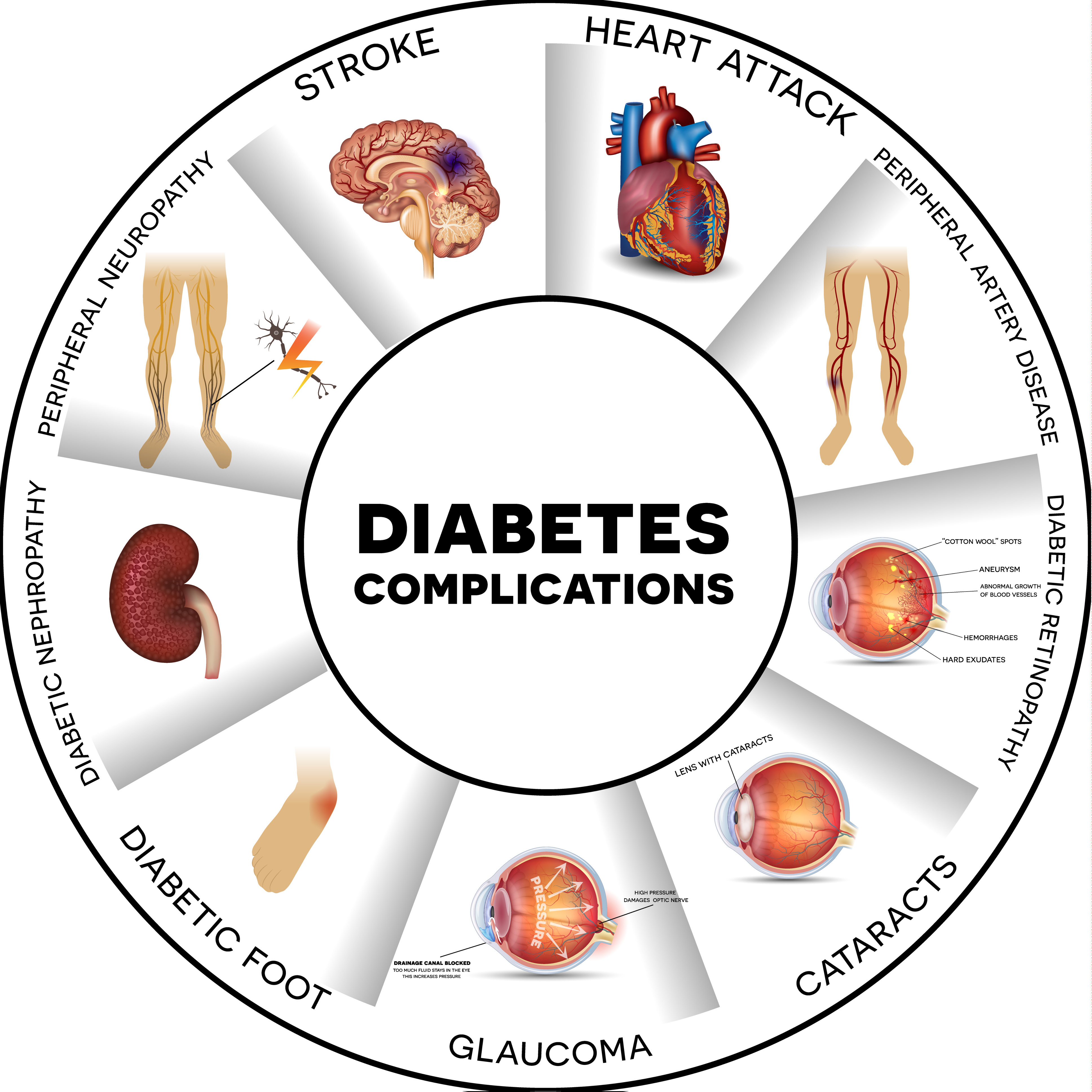November marks Diabetes Awareness Month, a time to bring focus to a condition that affects millions of individuals and families. Raising awareness about diabetes, its symptoms, and its management strategies is essential for encouraging early detection, understanding the condition’s impact on health, and promoting a healthier future for those affected. With proactive management, diabetes can be controlled, enabling individuals to lead vibrant lives. Here’s a closer look at diabetes and the steps to take for effective management.
Understanding Diabetes

Diabetes is a chronic health condition that affects the body’s ability to process blood sugar, or glucose. There are two main types: Type 1 and Type 2. Type 1 diabetes is an autoimmune condition where the body attacks insulin-producing cells in the pancreas, resulting in little to no insulin production. People with Type 1 diabetes need to take insulin daily. Type 2 diabetes, more common in adults, occurs when the body becomes resistant to insulin, leading to elevated blood sugar levels. Type 2 diabetes can often be managed with lifestyle changes and medication, and in some cases, can be put into remission. Additionally, prediabetes is a precursor condition where blood sugar levels are elevated but not high enough to be classified as diabetes. Lifestyle changes such as a healthy diet and regular exercise can often prevent prediabetes from progressing to Type 2 diabetes.
Diabetes by the Numbers
In the United States, diabetes affects over 38 million people, with Type 2 diabetes making up the majority of these cases. Alarmingly, nearly 1 in 3 American adults have prediabetes, and many are unaware. According to recent studies, the prevalence of diabetes continues to rise due to factors such as poor diet, sedentary lifestyles, and increased obesity rates. Raising awareness is essential to reversing these trends and encouraging early intervention, which can reduce the risk of diabetes-related complications.
Why Awareness Matters
Diabetes often goes undiagnosed in its early stages, leading to complications that could be prevented with timely intervention. Early detection and proactive management are crucial to minimizing the risks associated with uncontrolled diabetes, including heart disease, nerve damage, and kidney issues. Increasing awareness can empower individuals to seek early screenings, adopt healthier habits, and manage their condition effectively.
Recognizing Symptoms of Diabetes
Common Symptoms
The symptoms of diabetes can vary, but some common signs include excessive thirst, frequent urination, fatigue, and blurred vision. If these symptoms appear consistently, it’s wise to consult a healthcare provider for testing.
Early Detection
Early recognition of diabetes symptoms is vital, especially for individuals at high risk, including those with a family history of diabetes, obesity, or an inactive lifestyle. Detecting diabetes early can prevent severe complications and allow for effective treatment options, potentially slowing disease progression.
The Impact of Diabetes on Health
When left unmanaged, diabetes can lead to serious health complications. High blood sugar levels over time damage blood vessels and organs, increasing the risk of cardiovascular disease, neuropathy (nerve damage), kidney issues, vision loss, and joint problems. Proactive diabetes management can help prevent these outcomes.
Quality of Life Considerations
Managing diabetes with effective strategies allows people to maintain a higher quality of life. Properly controlled diabetes can reduce the likelihood of complications, enabling individuals to stay active, enjoy their daily activities, and preserve their overall health.
The Role of Nutrition in Diabetes Management

A balanced diet is essential for blood sugar control in diabetic individuals. Consuming nutrient-rich foods in appropriate portions helps stabilize blood glucose levels and supports overall health. “While getting a diagnosis of diabetes can be nerve-racking,” says Carly Draper, DN, CDCES, Director of Nutrition Services, “it is a condition that with support and education, can be managed and promote a long and happy life. Through diabetes education and support, individuals with diabetes are more likely to have better overall health and improved quality of life.”
Key Nutritional Guidelines
Certain foods are particularly beneficial for managing blood sugar, including high-fiber vegetables, lean proteins, and whole grains. Low glycemic index choices, like beans, whole grains, and most fruits, prevent blood sugar spikes and keep energy levels consistent throughout the day.
Healthy Meal Planning
Planning balanced meals is critical for diabetes management. Aiming for consistent portions, balanced macronutrients, and mindful eating can make a significant difference in blood sugar stability. Carthage Area Hospital provides nutritional counseling to help individuals create personalized diet plans, supporting them in developing healthy eating habits.
Lifestyle Tips for Diabetes Prevention and Management
Exercise and Physical Activity
Regular physical activity is a cornerstone of diabetes management. Exercise helps the body use insulin more efficiently, promoting stable blood sugar levels. For maximum benefits, a mix of aerobic activities (such as walking or cycling) and strength training is recommended.
Stress Management
Chronic stress can negatively impact blood sugar levels. Adopting stress-reduction techniques, such as deep breathing exercises, meditation, or physical activities, can help. Simple daily practices go a long way in supporting mental and physical health for those managing diabetes.
Blood Sugar Monitoring
Regular blood sugar checks are essential for keeping track of glucose levels and identifying any concerning trends early. With monitoring, individuals can make informed decisions about their diet, medication, and lifestyle adjustments.
Potential Complications Associated with Diabetes


